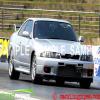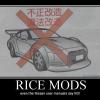NOiSY CLUTCH???
Announcements
-
Similar Content
-
Latest Posts
-
Hi, doing a rb25de+t build right now on my r34 4door that got a 75t block, wanting to use rb25det piston but just want to confirm the 25det and 25de rod, crank are same?
-
If a magnet doesn’t stick to anything except another magnet then it’s not a very good magnet and is probably just a piece of steel
-
Magnetic drain plugs are fine. Just don't buy cheap shit ones. They're actually better than letting magnetic shit float around in your oil. The magnet also didn't just "fall out". OP was drilling the plug out which allowed it to come out. Even some OEM plugs are magnetic.
-
By joshuaho96 · Posted
I have to say, I was briefly considering getting a magnetic drain plug but never could be bothered out of laziness/cheapness and now I'm very glad I didn't.
-







Recommended Posts
Create an account or sign in to comment
You need to be a member in order to leave a comment
Create an account
Sign up for a new account in our community. It's easy!
Register a new accountSign in
Already have an account? Sign in here.
Sign In Now